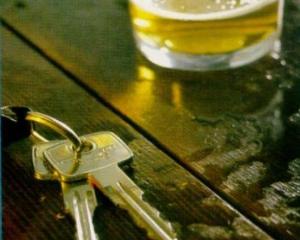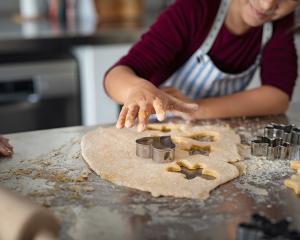Today's youngsters are growing up in a world where there's much more than alcohol, nicotine and cannabis to experiment with.
However, while most will tend to stop with these three, they are still bound to meet up with some of the others.
In fact, they probably know someone at school who either deals in them or knows someone who does.
Scary stuff for parents.
And the recent reappearance of synthetic cannabis will not have helped.
Whether we like it or not, our teens will be faced with having to make choices about use.
Any input we might hope to have must be made well in advance and we will also need to know what we are talking about.
Cliched comments or incorrect ''facts'' won't cut any ice.
So, why do some teens feel compelled to experiment with drugs?
Researchers, like David Wilmes get these sorts of responses from teens: ''I wanted to see how I'd feel'', ''I just wanted to have some fun'', ''I like to try new things'', ''I wanted to be part of the group'', ''Everyone else is and no-one's brain has rotted yet'', ''Nobody tells me what I can and can't do'', ''You've got to give things a go and find out for yourself'', ''The excitement'', and ''Drugs are cool; they make you feel good''.
Parents tend to have a different perspective: ''The school doesn't do enough'', ''Other parents can't control their kids'', ''It's the crowd he got involved with'', ''The police/government aren't doing enough'', ''The media glorifies drug-taking'' and ''Celebrities set a bad example''.
Notice how the youngsters tend to own the reasons but the parents tend to look outside, pointing the finger elsewhere.
The truth is probably somewhere in between.
Teens will make choices, they will move peer groups if it suits and they do take on board messages presented in a way that has meaning to them.
We need to be available as a knowledgeable resource person, guide and authority to help them make those choices, but not take over making them.
There has to be a degree of trust on our part, not always easy, especially when drug choices tend to be made when we're not around.
Nevertheless, they are not greatly different from any other choices and behaviours I have discussed over the years.
The way we structure our family life, the decisions we make, the communication channels we set up, fair limits, consequences and the examples we set go a long way towards ''drug-proofing'' our youngsters.
This does not mean they won't give something a try; however, it does mean there will be an underlying set of values based on sound and understood reasons.
These will kick in eventually.
But, if there is actual danger, don't procrastinate; intervene.
• Ian Munro












